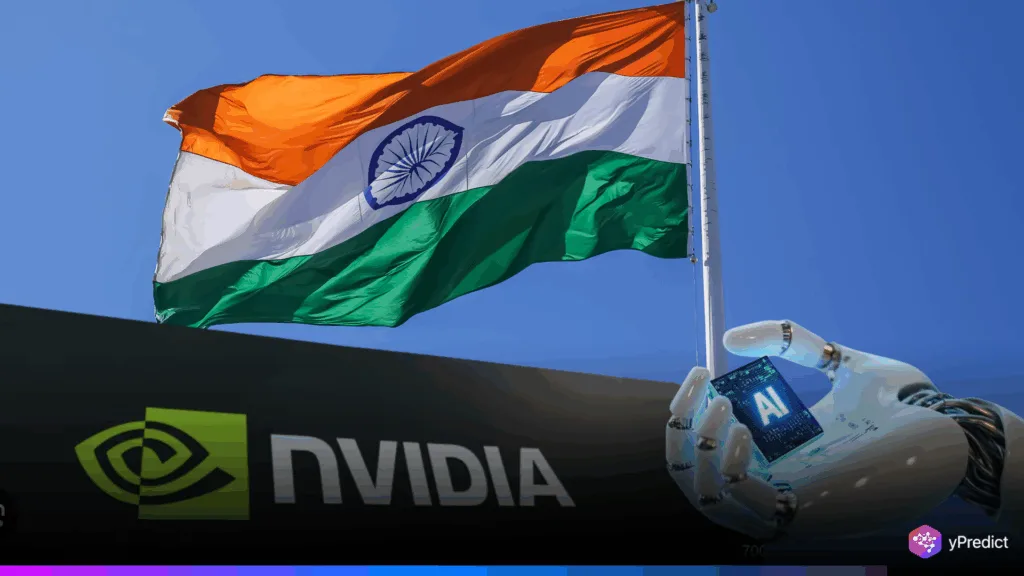
In a major policy reversal, the United States has scrapped the Biden-era AI chip export rule that limited access to advanced chips. This action is expected to help nations like India, whose infrastructure for AI technology is growing quickly.
Prominent chip manufacturers like Nvidia had resisted the limitations, saying the regulation was detrimental to both business and diplomacy. US AI policy chief David Sacks and Nvidia CEO Jensen Huang praised the ruling, calling it a critical step toward universal access to AI.
What Sparked the Reversal of the AI Chip Export Rule?
During Biden’s last days, the now-rescinded AI chip export rule was implemented. The goal is to keep AI technology out of the hands of rival nations, particularly China. Even US-friendly countries like India, Mexico, and Portugal were subject to restrictions on chip imports as a result of the three-tiered system. Although the rule was never fully implemented, it caused concern among chip manufacturers and international partners.
Officially, this policy has now been reversed by the Trump administration. Officials argue that it was overly restrictive, undermining relationships with trusted allies. At a recent forum, David Sacks claimed that the policy unfairly classified friendly nations as security threats and “misjudged how AI technology spreads.” Now that it has been repealed, trade in chips with countries outside of China can proceed more smoothly.
Global Access to AI Chip Export Expands
The rollback makes it easier to export AI chips to nations that are actively making AI investments. As it increases AI investments in both the public and private sectors, India stands to gain the most. In emerging markets, access to advanced Nvidia chips is essential for AI growth and innovation.
Nvidia is already responding to the change in global policy in the meantime. The company revealed a big partnership with Saudi Arabia-based AI startup Humain. To power a new 500-megawatt data center, 18,000 Blackwell GB300 chips will be shipped.
According to Jensen Huang, the founder of Nvidia, “AI is essential infrastructure for every nation, just like electricity and the internet.” This marks the start of a more interconnected global AI ecosystem.
AI Collaboration Grows Under Inclusive US Strategy
David Sacks underlined that the previous regulation penalized friendly countries like Saudi Arabia and India and misinterpreted chip diffusion. “Diffusion is not a risk with a friend,” he explained in a speech in Riyadh. The goal of the new strategy is to boost international AI collaboration without risking national security.
According to Under Secretary of Commerce Jeffrey Kessler, the US will now distribute AI technology more inclusively. This entails developing trust between partner countries and allowing them to develop without needless limitations. The plan aims to restore trust with allies and restore US leadership in the advancement of AI worldwide.
A new era in tech diplomacy is reflected in the decision to export AI chips. Now that they are not subject to arbitrary restrictions, nations like India can more effectively plan their AI infrastructure objectives.
What Does This Mean for India’s AI Growth?
The reversal of the AI chip export rule marks a defining moment in US AI policy. It removes outdated restrictions and aligns more closely with the needs of AI collaboration. As AI develops in India and other nations, access to Nvidia chips will be crucial. These chips are essential for building advanced data centers and intelligent systems. This change opens new doors for global cooperation. It also paves the way for stronger technological alliances.






